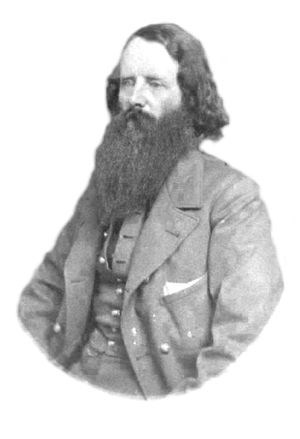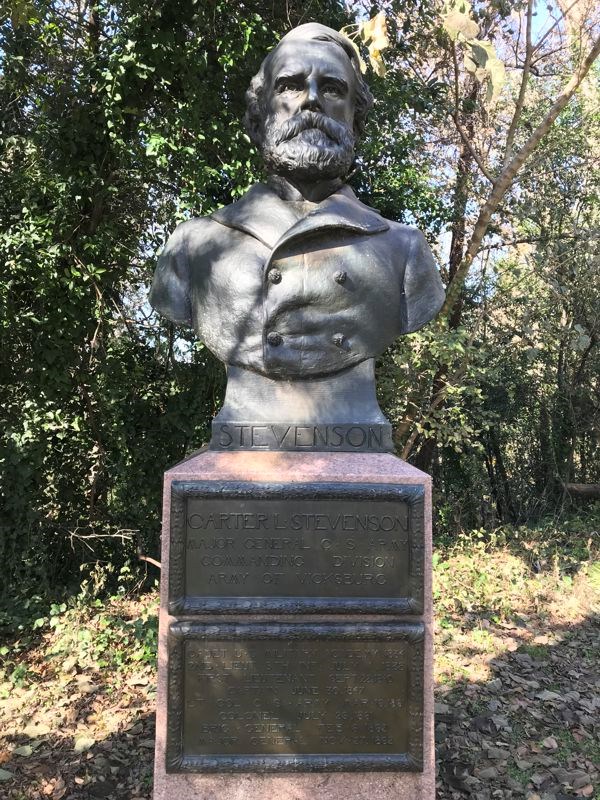
Alabama Department of Archives and History By the Vicksburg campaign, Stevenson had risen to major general, exercised independent command in east Tennessee, missed the Kentucky invasion, and had his division consolidated into Braxton Bragg's Army of Tennessee. In the middle of December 1862, Confederate president Jefferson Davis ordered Stevenson's division to reinforce Pemberton's army. Stevenson arrived and took command of Confederate forces at Vicksburg on December 30, just as the battle of Chickasaw Bayou was closing. Stevenson commanded all forces within Vicksburg until May 1 when Pemberton arrived to take direct command. After consolidating his forces and bringing them to Edward's Depot, east of Vicksburg, Pemberton's army found itself strung out along the roads south of Champion Hill, with Stevenson's division bring up the rear of the army. A staff officer identified Stevenson's division as the Achilles heel of Pemberton's army. "Stephenson's [sic] Div. had never been under fire, and was composed of the last regts. from Georgia and Alabama...far awar from their homes, and had been marched heavily for the past few days." Though not entirely accurate, Stevenson's division had the least combat experience and would find themselves in the most crucial sector of an eminent battle. On May 16, Stevenson's men were preparing to march back towards Edwards when the Federal army approached. One of the Federal columns assaulted the Champion Hill area where Stevenson's division was in position along the Jackson and Middle roads. Stevenson's task was to defend the crossroads, the only mode of escape for the entire Confederate army across the swollen Baker's Creek. From 10 AM to 1:30 PM, his division was assaulted, and eventually thrown back in confusion, leaving the crossroads in the Federal army's control. After a desperate counterattack that briefly recaptured the crossroads, the Federals defeated the Confederate troops and forced them to retreat. Stevenson's division would hold the right wing of the Confederate fortifications at Vicksburg and would become a prisoner of war when the city fell on July 4, 1863. Once he was paroled, Stevenson continued commanding a division of Confederate troops in the Army of Tennessee, fighting in the Atlanta and Nashville campaigns, before surrendering with Joseph E. Johnston's army at Durham Station, North Carolina, on April 26, 1865. After the war, Carter Littlepage Stevenson, Jr. was employed as a civil and mining engineer until his death on August 15, 1888, in his hometown of Fredericksburg, Virginia. 
NPS Photo Major General, Commanding Division, Army of VicksburgInscription: Carter L. Stevenson, Major General C.S. Army, Commanding Division, Army of Vicksburg; Cadet U.S. Military Academy 1834; 2nd Lieut. 5th Inf. July 1, 1838; First Lieutenant Sept. 22, 1840; Captain June 30, 1847; Lt. Col. C.S. Army Mar. 16, 1861; Colonel July 26, 1861; Brig. General Feb. 6, 1862; Major General Nov. 27, 1862. Cost: $565 for bronze bust; $208.91 pedestal paid by the Federal Government. Sculptor: Theo Alice Ruggles Kitson Erected: February 1914 Location: South Confederate Avenue, west of Hall's Ferry Road overpass. |
Last updated: November 16, 2019
